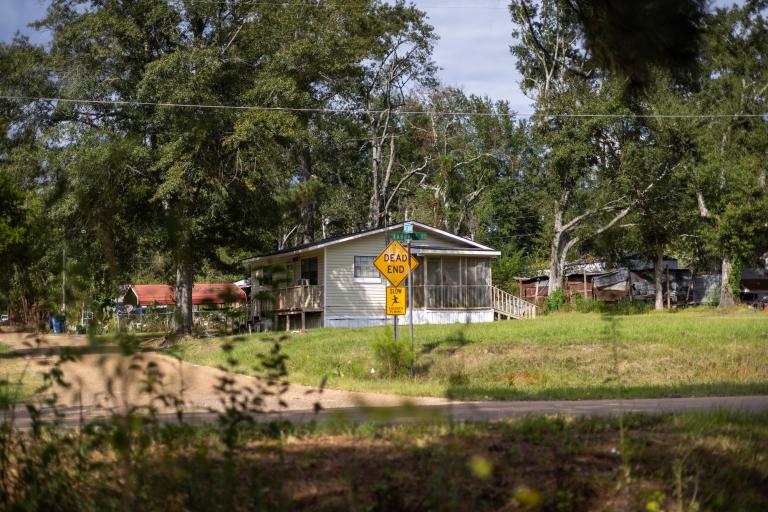
Photo by Shutterstock.
Imagine you were facing a life-threatening illness, and your doctor told you this: “You need to move, or you will never survive this stuff.”
That is exactly what happened to West Virginia resident Debbie Havens, who lives near the infamous Little Blue Run coal ash dump. But Debbie didn’t move, and after fighting pollution from the site for decades, she and her neighbors recently got some unbelievable news — FirstEnergy, the utility that operates the site, is going to shut it down.
That is just one of the many inspiring successes that made headlines in recent weeks, and they all have one thing in common — they all happened due to the courage, persistence, and determination of committed volunteers and local residents. From West Virginia, to Pennsylvania, to Illinois, we’ve seen pivotal victories recently in our fight for clean water and healthy families.
Good news for West Virginians and Pennsylvanians came when FirstEnergy Corp. agreed to close its Little Blue Run coal ash site, one of the nation’s largest and most controversial. The 1,700-acre unlined wet dump for coal ash coming from FirstEnergy’s Bruce Mansfield power plant straddles the border between West Virginia and Pennsylvania. It contributes a toxic cocktail of arsenic and selenium pollution to nearby ground and surface water.
The coal ash dump is visible from space, exuding an eerie bright blue color. In the past, the Sierra Club has profiled West Virginians who live near the dump, including Debbie Havens. Havens’ husband had his thyroid removed several years ago after being diagnosed with thyroid cancer, and in 2010, Havens developed a thyroid nodule. With no family history of thyroid problems, the Havens’ endocrinologist assessed that environmental exposure was the cause, and told her, “You need to move or you will never survive this stuff.”
Unfortunately, the Havens’ experience is not unique. For those living near unlined coal ash dumps like Little Blue Run, the risk of cancer can be as high as 1 in 50. And this statistic only takes into account the risk of cancer from exposure to arsenic in drinking water — not any of the other poisonous pollutants like lead, mercury, and selenium.
Given this level of toxicity, it is no surprise that local groups cheered Pennsylvania officials for stepping in and protecting local water sources by ordering the closure of the Little Blue Run coal ash dump. FirstEnergy is required to begin closure plans for an eventual 2016 shutdown of the site. Unfortunately, the company wants to build another coal ash dump to replace Little Blue Run. Though the company claims that the new coal ash dump will be double-lined and “state of the art,” many residents oppose it.
While the closure of the Little Blue Run site will bring some peace of mind to families worried about pollution, and to those who have dealt with it firsthand like Havens, it is important to hold FirstEnergy accountable for cleaning up the mess it has already made and to ensure that water is not jeopardized by future coal ash dumps.
Meanwhile, in Illinois, volunteers and local residents banded together to protect their water quality and local wildlife from pollution from a proposed coal mine. Capital Resources Development Co. had wanted to operate a 600-acre surface mine near the 150-person town of Banner and the Rice Lake State Fish and Wildlife Area.
In a decisive victory for the residents of Banner and local wildlife, the Illinois Department of Natural Resources denied the mine’s permit application last month. Among other concerns, the mine would have threatened nesting ospreys, bald eagles, and short-eared owls.
As Mayor Ken Fuller puts it, “Banner could have lost its wells and water if the coal mine had happened … My town could have died.”
Finally, on July 31, the West Virginia Environmental Quality Board ruled that the state’s Clean Water Act permit for a mountaintop-removal mine, Patriot Mining Company’s New Hill West mine, is unlawful because it does not set clear limits for harmful pollution that degrades water quality and threatens stream life. The decision demonstrates that the science is clear and stricter permits are necessary to protect Appalachian waterways from coal mining pollution. The Sierra Club and Appalachian Mountain Advocates won the case in front of the West Virginia Environmental Quality Board.
Jim Sconyers, chair of the West Virginia chapter of the Sierra Club, welcomed the news, saying, “We’re glad to see the Environmental Quality Board take a tough stance to ensure the coal industry has to follow the rule of the law. These new permitting procedures will help limit the toxic pollutants found in coal waste that threaten the health of our rivers and streams as well as the residents who fish, swim, and play in these waterways.”
And Dianne Bady, co-director of the West Virginia-based Ohio Valley Environmental Coalition, said, “It is a relief to see our state environmental quality board affirm the science and follow the Clean Water Act.”
Coal is dirty from cradle to grave, whether it is mountaintop-removal mining or disposing of the toxic waste in ash ponds. It threatens the water that families and wildlife depend upon. Luckily, we continue to make big strides to stop coal companies from polluting our water. I certainly find these recent victories inspiring. Thanks to local volunteers and their hard-won successes, families across the country will enjoy cleaner water and a healthier future.




